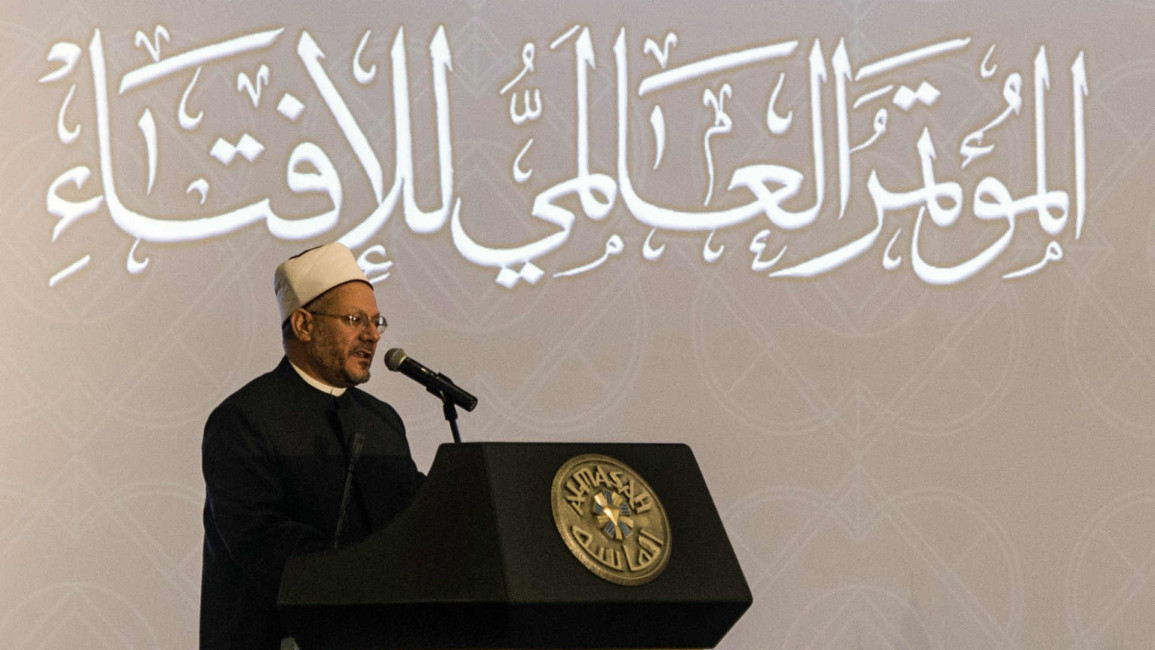Egypt's Grand Mufti issues fatwa ruling against 'risky' Bitcoin
Egypt's Grand Mufti issues fatwa ruling against 'risky' Bitcoin
The cleric and his counsellor warn Egyptians against the booming cryptocurrency, citing its potential links to corruption and terrorism.
2 min read
Sheikh Shawki Allam's remarks endorsed the Bitcoin trading ban previously issued by the government [Getty]
Egypt's Grand Mufti has issued a fatwa ruling the trading of Bitcoin as against Islamic Sharia, following an earlier ban on Bitcoin trading issued by the Egyptian government.
Top cleric Sheikh Shawki Allam warned on Sunday against the digital currency, citing its risky and unregulated nature which could lead to fraudulent transactions.
Allam told Egypt Today that he met with a group of economic experts to reach his final ruling. He clarified his findings on the cryptocurrency, stating that Bitcoin could allow for tax evasion, piracy, money laundering, fraud and corruption, and therefore is forbidden in Islamic Sharia Law.
The Mufti's counsellor, Magdy Ashour, added in a separate ruling on Sunday that Bitcoin was forbidden in Islam due to the possibility for it to be used to fund terrorism.
"This currency is used directly to fund terrorists," Ashour told Egypt Today, adding that its usage could cause major damage to the country's economy.
"It has no set rules, which is considered as a contract annulment in Islam, that is why it is forbidden," the counsellor said.
Egypt has suffered a spate of terrorist attacks recently as it battles IS-affiliated groups in the Sinai region.
Egypt's first Bitcoin exchange was opened in August 2017, and since then the value of the digital currency has skyrocketed, with many labelling it as a volatile bubble.
In December, Egypt's chief financial regulator issued a warning to Egyptians against trading the cryptocurrency, declaring it illegitimate.
The Egyptian cleric's fatwa comes after a similar ruling by Saudi cleric Assim al-Hakeem, despite the recent announcement by Saudi Arabia and the United Arab Emirates that a cross-border cryptocurrency was being developed between the two governments.



